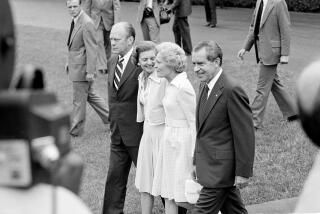‘The Leader’s Code’ promotes a servile type of leadership
That the experience of military leadership offers some useful lessons for leaders in other fields has long been understood. Sun Tzu’s “The Art of War” is still read by business leaders and sports coaches, and more recently Norman Dixon’s “On the Psychology of Military Incompetence” offers lessons from military failure.
The latest crossover book that draws from military experience is author Donovan Campbell’s “The Leader’s Code: Mission, Character, Service and Getting the Job Done,” published by Random House.
As such efforts go, it is a pretty good one. Campbell, a former captain in the U.S. Marine Corps who served in Iraq, writes fluently and persuasively, blending abstract ideas and personal experience in a highly readable narrative.
He begins by arguing that people no longer trust their leaders, whom they see as greedy and selfish.
“The widespread destruction of trust has left a leadership vacuum that is slowly becoming filled with despair,” he says, pointing out that this is true of business and government alike. “We trust no single leader, or class of leaders, to fix what is broken.”
Campbell believes that the military model of servant leadership — in which leaders are the servants of the organizations they lead, not its masters — offers a useful guide. The two key ideas in his conception of leadership are “character” and “mission.”
Character, as Campbell defines it, means strength of character, but also encompasses virtue — a word that appears often in this book. Leaders must do right by others; they should strive to make the world a better place for everyone, not simply plunder it for what they can get for themselves.
That brings us to mission, which can be defined as a broader sense of purpose. One of the best passages in the book recounts how as a young officer in combat, Campbell came face to face for the first time with the idea of his own mortality. The notion that he might die caused him to question his previous beliefs about life and, in turn, put him in touch with a sense of purpose and an understanding of what leadership is for.
Throughout the book, Campbell reiterates the same message. Leaders must sublimate themselves to the needs of others. They must remember that their mission is something much larger and more important than their individual needs, and be prepared to sacrifice themselves for the higher purpose.
To get things done, they need to build relationships of trust with others. The chapter headings of the main body of the book — Humility, Excellence, Kindness, Discipline, Courage and Wisdom — give a clear indication of what he believes are the important components of leadership.
In the introduction, Campbell is critical of much current leadership literature, which he sees as too focused on the tasks of leadership and not enough on its moral purpose.
A theme that emerges from the book is that leadership, in Campbell’s conception, is not so much a task as a state of being. One does not do leadership; rather, one is a leader.
This quasi-existentialist approach works most of the time, but not always. Occasionally in this book one does yearn for some good old-fashioned tips on how to lead. Authenticity is necessary to leadership, but on its own it is not always sufficient.
Campbell offers a great deal to think about in this book. Being picky, one could argue that there is nothing terribly new here and that most of the ideas Campbell describes have already been discussed elsewhere.
Nonetheless, he brings a fresh approach to them, born of his personal experience. He does not just talk about leadership; he has experienced it under very trying conditions. That novel take on an existing subject makes this book worth reading.
Witzel is a frequent contributor to the Financial Times of London, in which this review first appeared.






